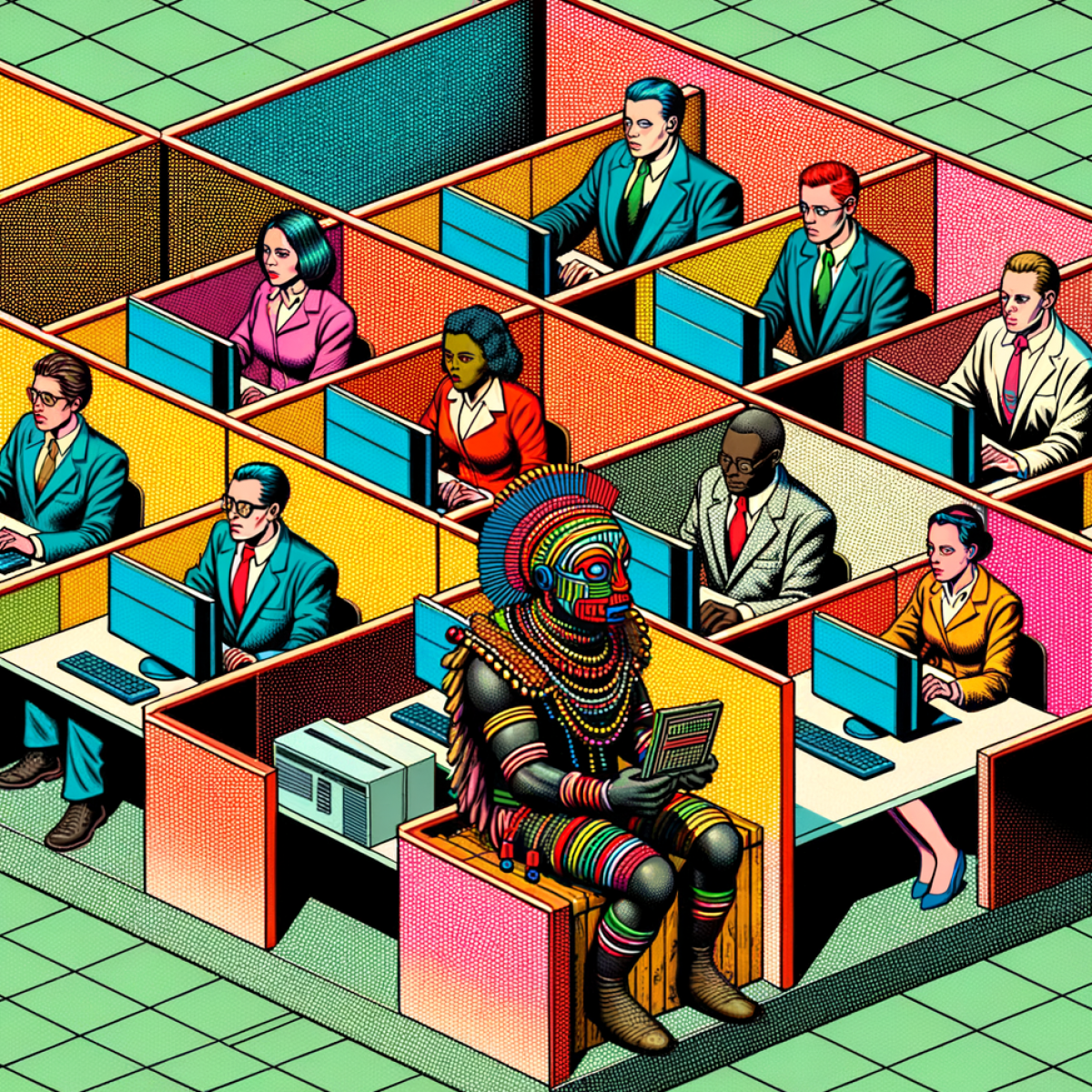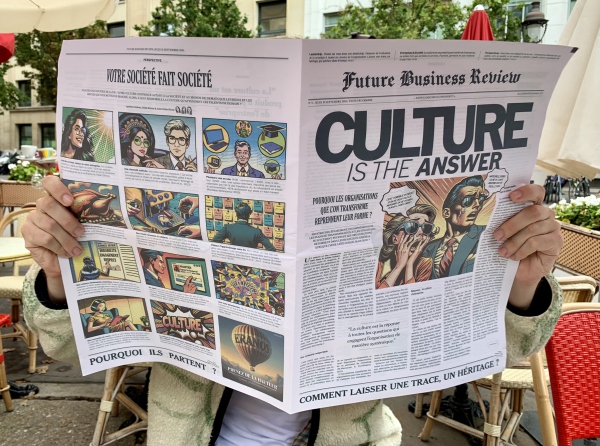Twenty years ago, Michel Crozier, a pioneer in organizational sociology, lamented: “Few people truly intervene based on a deep understanding of an organization's underlying reality” (Canal Académies 2005). How can we make this complexity, this subtlety, and the less-visible aspects of a company more apparent?
In her book *Anthrovision*, anthropologist Gillian Tett advocates adopting a social science perspective to observe the lived reality within organizations. For companies to effectively influence their culture and define what it should be, they first need to understand what it actually is.
Differentiate to Engage
**Problem:** Everyone discusses corporate culture while carefully avoiding defining it. Culture is "almost never considered a problematic concept" (W. Batteau 2012, 57). It has become a catch-all term used to address everything that eludes managerial rationalism.
Godelier highlights this ambiguity: corporate culture can be "at various times, a metaphor for complexity, a lever or brake on change, a framework for action, or sometimes simply a discourse of indoctrination" (Godelier 2006). The notion of "cultural transformation" is a prominent example, frequently found in business articles such as "How to Quickly Transform Your Company Culture" (H. Cohen 2021).
So, what is culture? It can be viewed as a set of interdependent elements: behaviors, values, representations, etc. However, within an organization, it is more practical to define it by its effects: it is a means of distinguishing "us" from "them." Corporate cultures differentiate themselves not so much by their components (processes, history, market, organizational structure, etc.) but by their ability to engage employees in a shared journey.
What if we all thought like anthropologists?
To enable all employees to participate in a shared journey, Tett encourages us to think like anthropologists. Before being value-producing machines, we’ve forgotten that companies are social entities: “companies began their lives as social institutions — and ordinary workers would probably prefer them to stay that way” (Tett 2022, 226).
By reaffirming the social origins of companies, we can understand how societal events penetrate and alter them. For instance, the urgency driven by the VUCA context has brought ecological issues to the forefront (Tett 2022).
According to Tett, this is an opportunity for companies to broaden their perspectives. She warns against falling into smooth and “well-defined” models (Tett 2022, 231). To navigate the uncertainties facing organizations, “we need a lateral vision, not a tunnel vision” (Tett 2022, 231). Companies should adopt an “anthro-vision,” applying a “distant” or decentralized view to themselves, distancing their own categories of thought (stereotypes, preconceived notions, etc.) to better understand the diverse worlds that constitute them.
"Good" friction
Companies, particularly multinationals, are key sites for intercultural encounters (Tsing 2005). Through her ethnography of the Indonesian tropical rainforest, Anna Tsing illustrates the complex network that forms companies and their externalities. Impacts on the territory, connections with local communities, and employment pools create what Tsing calls "frictions": "awkward, uneven, unstable, and creative qualities of interconnection through differences" (Tsing 2005, 4).
In contrast, the discourse of globalization attempts to smooth over the inherent friction with universal principles. However, these principles are often anchored in a Western context that overlooks otherness. In organizations, a universalist impulse that ignores this otherness can prevent employees from locally reappropriating and transforming commitments.
Managers thus try to reduce these frictions to implement a "global strategy" and consolidate a unified culture. Yet, friction is actually a sign of appropriation and adaptation work: it indicates that culture is in the process of being created (Tsing 2005, 6)!
Description before prescription
While anthropology has historically focused on culture to understand the diversity of the human experience (viewing culture as a means to describe what is), the business world has adopted it in a prescriptive manner: as a set of behaviors or values aimed at improving organizational performance.
If companies aspire to transform their culture, concepts derived from social sciences are invaluable tools for gaining a more comprehensive view of that culture and the lived reality of employees. The concepts of “anthro-vision” and friction help initiate this paradigm shift. Recognizing our cultural biases, promoting diversity, and utilizing anthropological perspectives to see our world with fresh eyes makes the tacit aspects that shape social practices more visible.





